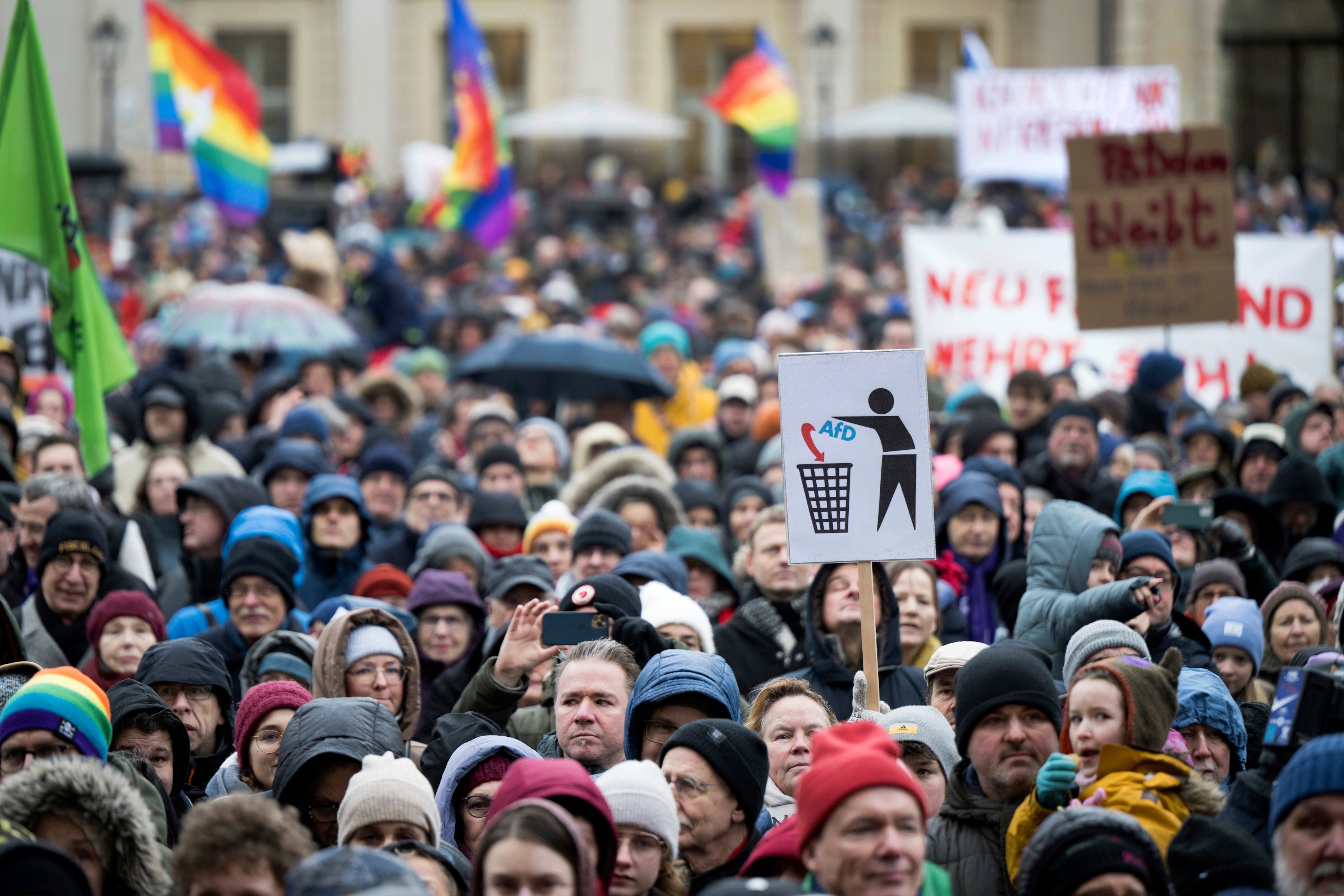Demonstrations against the far right held in Germany following a report on a deportation meeting
Thousands of people have gathered in Germany for demonstrations against the far right, among them Chancellor Olaf Scholz and his foreign minister

Thousands of people gathered in Germany on Sunday for demonstrations against the far right, among them Chancellor Olaf Scholz and his foreign minister, following a report that extremists recently met to discuss the deportation of millions of immigrants, including German citizens, if they took power.
There were protests in Potsdam, just outside Berlin, and at the Brandenburg Gate in the German capital. They followed a demonstration on Saturday in the western city of Duisburg.
Scholz and Foreign Minister Annalena Baerbock represent the Potsdam area in the German parliament, and Baerbock told German news agency dpa that she attended the demonstration there as one of thousands of locals “who stand for democracy and against old and new fascism.”
Last week, media outlet Correctiv reported on the alleged far-right meeting in November, which it said was attended by figures from the extremist Identitarian Movement and from the far-right Alternative for Germany party, or AfD. A prominent member of the Identitarian Movement, Austrian citizen Martin Sellner, presented his “remigration” vision for deportations.
Potsdam Mayor Mike Schubert said that “these plans are reminiscent of the darkest chapter of German history.”
AfD has sought to distance itself from the meeting, saying it had no organizational or financial links to the event, members who apparently attended did so in a purely personal capacity, and it wasn't responsible for what was discussed there.
The furor has prompted some calls for Germany to consider seeking to ban AfD, which has moved steadily to the right since its founding in 2013. Many of its opponents have spoken out against the idea, arguing that the process would be lengthy, success is highly uncertain and it could benefit the party by allowing it to portray itself as a victim.
AfD is currently second in national polls, behind the mainstream center-right opposition and ahead of the parties in the center-left Scholz 's unpopular coalition. Germany faces the European Parliament election in June and then state elections in September in three eastern regions where AfD is very strong. Those include Brandenburg, where Potsdam is located.
Subscribe to Independent Premium to bookmark this article
Want to bookmark your favourite articles and stories to read or reference later? Start your Independent Premium subscription today.
